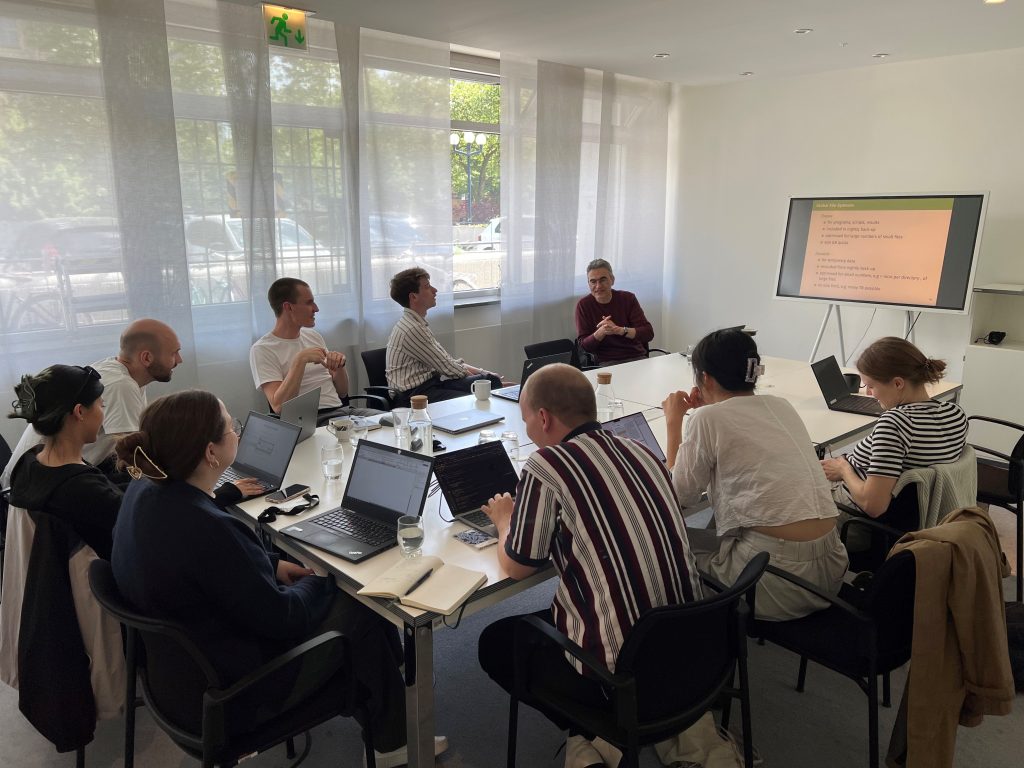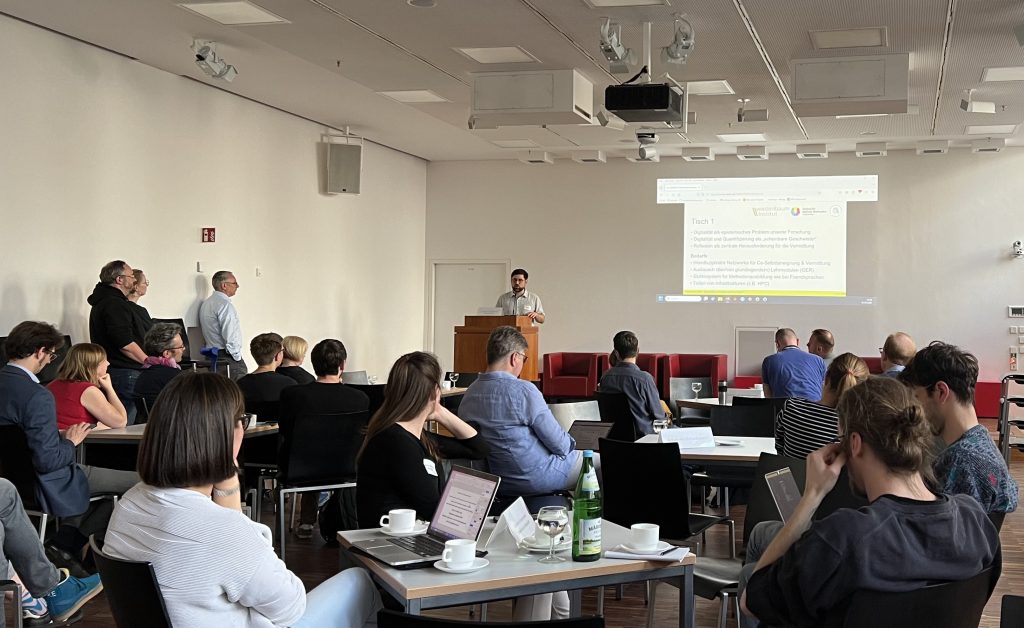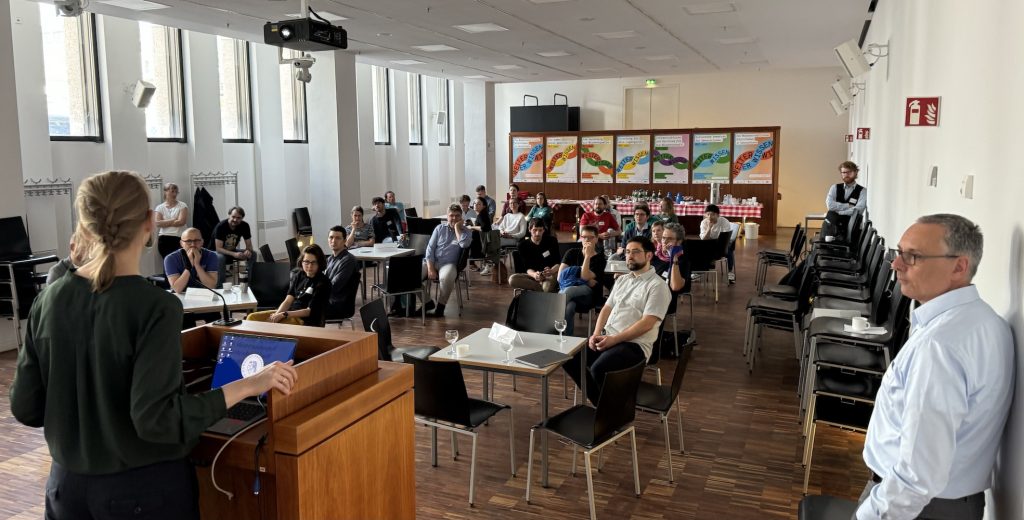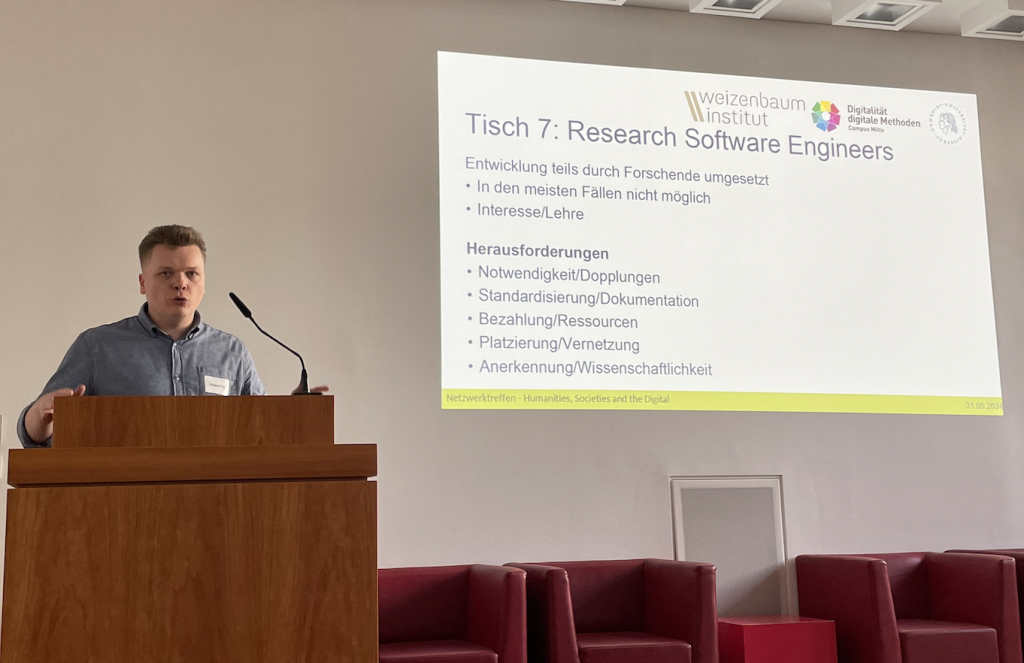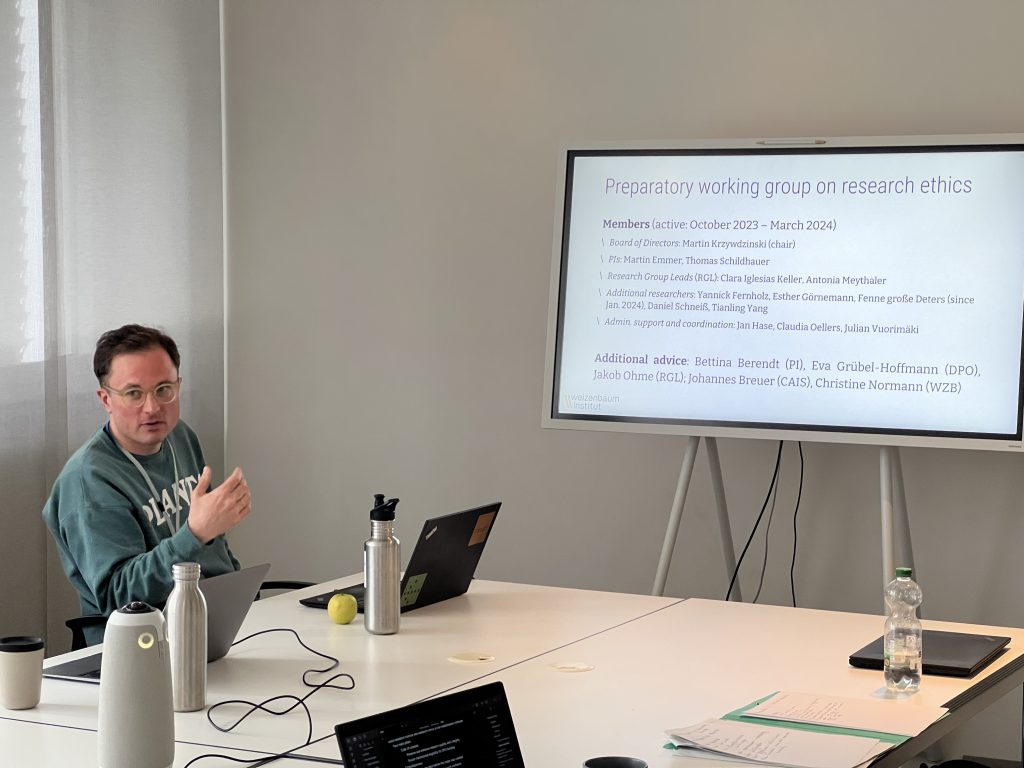On November 18, 2024, Karsten Wolf and Florian Hohmann from the University of Bremen presented the software OpenQDA at WI. In this Show and Tell, they gave an overview of OpenQDA and its motivations, functions, and limitations.
In the first part of the Show and Tell, Karsten Wolf presented the development and purpose of the software. It is an open-source alternative to the commercial software MaxQDA, which is a popular tool for text annotation (i.e., coding) in qualitative research. The team at the University of Bremen had been working on OpenQDA for quite some time to not only deliver a free and customizable alternative to MaxQDA, but also allow for (simultaneous) collaboration on projects. In addition, OpenQDA has a plug-in framework that will be expanded over time. For example, atrain is already supported and can be used to transcribe audio files to text, and a plug-in that allows for implementing Python scripts is currently in the works. While OpenQDA is still under development and currently in early-access, the first official release is planned for the near future. It runs on servers at the Unversity of Bremen and can be used by anyone for free.
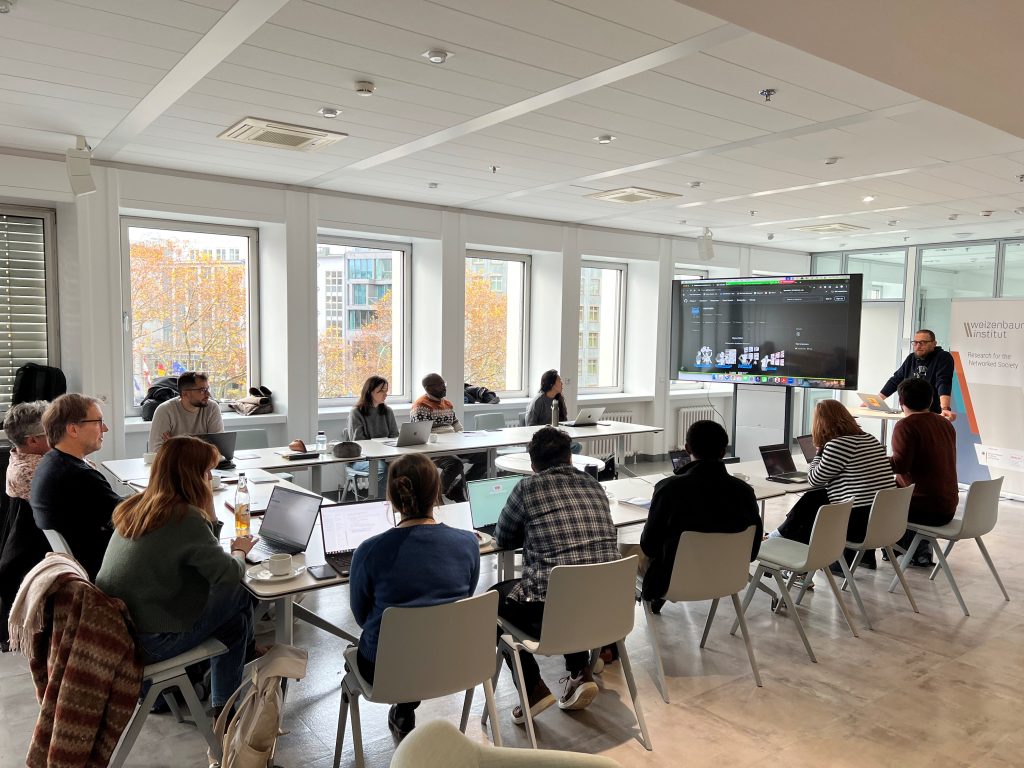
In the second part of the Show and Tell, Florian Hohmann gave a practical introduction to the most recent version of the software. He showed participants how to create an account, set up a new project, and create a team to work on projects collaboratively. Text content can be added manually, from documents, audio files, and soon even remote sources. These texts can then be annotated/coded using separate, color-coded categories, and it is possible to set up sub-categories for further refinement. The results can be exported in CSV format. In addition, users can create a code portrait, which illustrates the distribution of categories across the text, and a word cloud for quick visual analysis.
At the end of the Show and Tell, participants provided feedback and suggestions for future implementation. For example, the automated conversion of scanned documents to plain text using OCR, and functions like counting and automatic coding, were discussed. Some participants were willing to stay and provide further feedback even after the main event ended. Finally, the team from Bremen, the Methods Lab, and the Weizenbaum Institute IT department discussed the installation of OpenQDA on the Institute’s servers in 2025 to provide a local instance to Weizenbaum Institute researchers.
The Methods Lab would like to thank the colleagues from Bremen for their work, and all participants for providing useful feedback!
